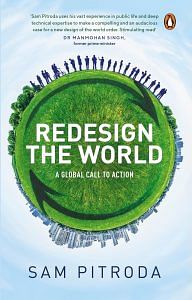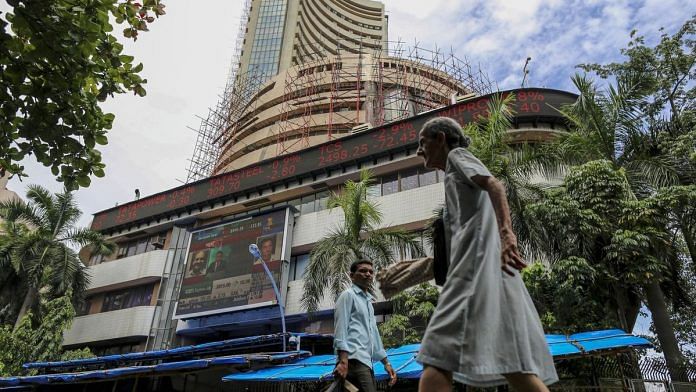The twenty-first-century economic order must see the whole of economic activity as a single continuing cyclical process, comprising countless interrelated cyclical subprocesses, with the waste from each providing resources for the rest. It must design the economic system as an organic part of the natural world, not as a machine external to it—a reintegration which will also mean a rejection of the deluded assumption that the natural world is a limitless pool. The new financial system must thus be one of systematic conservation.
The twenty-first-century economy must be designed and managed as a multi-level one-world economic system, with autonomous but interdependent parts at all levels
Economic policymaking today is still based on old assumptions. On the one hand, national governments insist on controlling the spending of local government authorities as a part of national economic management. On the other, international economic relations are based on the idea of sovereign nations negotiating among themselves. Currencies are still issued nationally, not locally or internationally; money is denominated and controlled at the national level, not local or international.
The gap between conventional economic theory and practice on the one hand and economic realities on the other is already growing too contentious to ignore. The need for effective monetary policy at the local level is highlighted by cities’ and rural districts’ economic problems in many parts of the world. Meanwhile, recurring international ecological and economic issues, the increasing need for global economic coordination, the growing domination of the world economy by transnational corporations, and the emergence of a one-
world financial system based on computer communication between London, Tokyo, New York and other centres emphasize the need for effective economic policymaking at the global level. To continue to focus on national economic policymaking—whether from a Keynesian, monetarist, socialist or any other standpoint—would simply be to ignore twenty-first-century realities.
Also read: ‘World’s fastest recovery’ outlook for India at risk as second Covid wave hits country
It is necessary to re-examine and redefine many economic concepts. These will include wealth creation and capital accumulation, efficiency and productivity, dependence, interdependence, self-reliance, risk and security, needs, wants and scarcity. What will be the meaning of wealth creation and capital accumulation, along with greater efficiency and productivity for people and organizations, when each would be operating at various levels of an enabling and conserving one-world economy? And how will they best be measured?
Today, in most management and economic theories, the link to the broader ecosystem—nature herself—is missing, causing enormous, negative consequences. Today capitalism and the financial system are growing at an unhealthy rate for the overall system’s survival. Consider them like the uncontrolled growth of cells which leads to cancer.
Capitalism has developed into a monstrous, web-spinning, self-organized system, encompassing the entire globe. The financial crisis of 2008 left even financial experts in despair. They were primarily fuelled through excessive liberalization and privatization, which benefited the 1 per cent on top and took away from the other 99 per cent. Besides, our current economic system is premised on the idea of single-minded growth, ignoring the finite boundaries of the biosphere and the laws of physics. Our financial and economic system can only function if it serves humanity and our planet as a whole. Today, society and the planet are serving the needs of financial and economic growth in an unsustainable manner, to such an extent that it is threatening our survival as a species. Today, it is not about the politics of liberal vs conservative or right wing vs
left wing. These debates are outdated and fall short once we realize and understand our current problem’s root cause.
Today, in most management and economic theories, the link to the broader ecosystem—nature herself—is missing, causing enormous, negative consequences. Today capitalism and the financial system are growing at an unhealthy rate for the overall system’s survival. Consider them like the uncontrolled growth of cells which leads to cancer.
One of the myths of today is aiming for infinite exponential economic growth on a planet with finite boundaries. We need to understand the significance of universal patterns that have shaped the cosmos and our Earth over millions of years and created a healthy, stable and sustainable environment with a delicate balance. How can we learn from creation, from the lessons that nature teaches us, to heal and redesign our capitalist system? The basic idea is to shift away from our linear growth-based economy towards a new sustainable economy.
Also read: India’s energy transition path is on track. Now it needs to pick pace: Analysis
We must first understand that nature does not stop at national borders; it is a complex, adaptive system spanning the whole world and connecting everybody. The jungles in Brazil are far away from Chicago, but they are, to a large extent, responsible for the air we breathe. Even if we live in a globalized world, we act and live locally most of the time. Second, we have to change how we perceive wealth. Wealth is more than just money in a bank account. There are other forms of wealth, such as human, cultural, environmental, spiritual, material and social capital. What does prosperity mean if we take a more holistic perspective? Before spending a lifetime chasing money and material, we should try to produce and sustain these other forms of diverse wealth.
Recent modern research in biology, neuroscience and other disciplines suggests that cooperation is far more widespread and fundamental than previously thought. Competition is only one part of the game. In a new sustainable economy, we need empowered participation. An independent system’s health only emerges if there is a contributory benefit in one way or another on the health of the whole. Therefore, the idea is not merely one of self-interest; it is about the quality of each participant’s integration with the larger whole. Today, we need to shift away from negotiating only for our own personal or national needs and to move towards co- creating well-being and systemic health in the broader context
we are embedded in. Ultimately, this larger context is our Earth. Undoubtedly, the whole is always constructed from different pieces of the puzzle. Natural habitats take thousands of years to grow and to find a balance. More and more, we see how indigenous communities and traditions have been uprooted for profit. However, the false claim is made that it is part of a more extensive process benefiting globalization. Sustainable economics assumes a different perspective when, as a principle, we—all individual communities and places—integrate into the whole.
The key is to integrate localization and globalization effectively, encompassing the private and public sectors, small and large enterprises, organized and unorganized labour, products and services, multiple supply chains and networking of resources, via centralized and decentralized implementation, to optimize human capital to assure an improved environment and inclusion, basic needs, education, health and prosperity for all.
Human communities are mosaics of traditions, values, beliefs, peoples, cultures and local environments, and they are affected by the long-term impact of geography, history and the environment. Only if these unique qualities are understood and integrated into a global economy will we achieve healthy and resilient communities worldwide. Old farming techniques used different kinds of plants positioned next to each other for growth and mutual support, thus enabling fertile outcomes. Without diversity, natural and human- made systems are similar to monocultural farming—they become more vulnerable and lose abundance and profusion.
Nature herself is abundant in her diversity and beauty. And while we have specific limited resources, if we take the idea of a new economy seriously, we will realize that there is enough for everybody from a systemic perspective. What do we need to be vibrant and happy and live a meaningful life? Certain goods and products are necessary, but what has been empirically proven to be more fulfilling than any material wealth on Earth are friends and family, and contribution to a meaningful cause. How do we start changing our current economic model into a new economy to help redesign the world?
Is it necessary for a nation or economy to continue to grow forever? Is growth an excellent objective to chase? Is it possible to have zero growth and still be happy and content? Can we reach a state where needs are met before wants? Is it acceptable to have slow growth for rich countries and high growth for emerging countries? Can we design economic theories to expedite inclusion, equity and equality?
These will be among the kinds of questions in our minds as we turn to replace old economic ideas with new ones. It will take a long time to move from current financial practices to the new economy. It will demand a broader global conversation, not among economists, but with the people at large. It will require understanding and agreement on a unique design of the world to develop the new economy. This cannot be done in isolation. It has to be an integral part of the other four pillars of the redesign: inclusion, basic needs, conservation and non-violence.
 This excerpt from Sam Pitroda’s book Redesign The World: A Global Call to Action has been published with special permission from Penguin Random House India.
This excerpt from Sam Pitroda’s book Redesign The World: A Global Call to Action has been published with special permission from Penguin Random House India.



